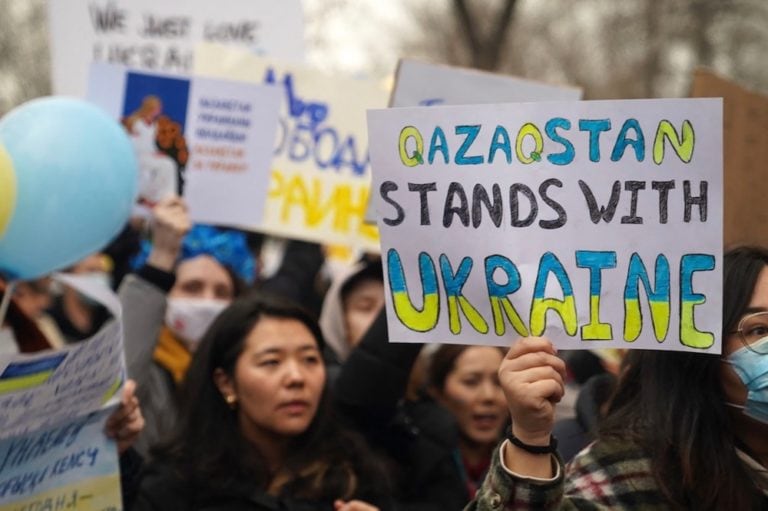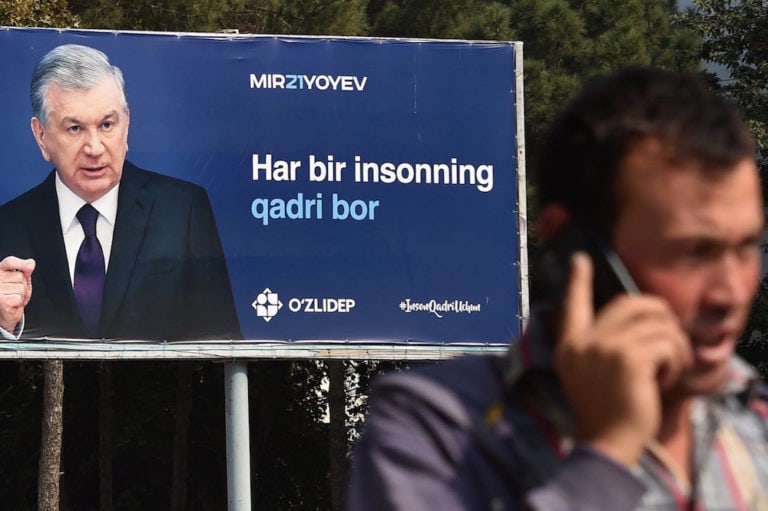(RSF/IFEX) – On 26 February 2003, RSF expressed its concern over the sentencing of an Uzbek journalist to seven years’ imprisonment. The organisation suggested his conviction was little more than an excuse to crack down on the media and regime opponents in general. On 18 February, a Tashkent court found journalist Gayrat Mekhliboyev guilty of […]
(RSF/IFEX) – On 26 February 2003, RSF expressed its concern over the sentencing of an Uzbek journalist to seven years’ imprisonment. The organisation suggested his conviction was little more than an excuse to crack down on the media and regime opponents in general.
On 18 February, a Tashkent court found journalist Gayrat Mekhliboyev guilty of belonging to the banned Islamist party Hizb ut-Tahir, possessing “illegal written material” and using his journalistic activities to promote religion, public discussion of which is tacitly forbidden.
“The charges against him are too similar to those used in other unjustified prosecutions of independent journalists and government opponents for them to be believed,” RSF Secretary-General Robert Ménard said in letters to Public Prosecutor Rashid Kadirov and to Interior Minister Zokirzhon Almatov.
“We remind you that prison terms for press offences are in total contradiction with international press freedom standards. We ask you to see to it that the hearing of his appeal against the sentence is just and fair and that his statements about being tortured while in detention are taken into account,” Ménard added.
Mekhliboyev was arrested on 24 July 2002 in a Tashkent market during an anti-government demonstration, which he denied taking part in. His arrest came one month after he completed a journalism course at Tashkent University.
His trail opened on 5 February. He was accused of writing an article in the 11 April 2001 issue of the newspaper “Khurjat”, entitled “The Scales of Justice”, in which he allegedly explained the ideas of the banned Islamist party Hizb ut-Tahr.
Mekhliboyev admitted to having studied the party’s doctrines but denied possessing banned writings and said he had produced the article on the basis of his own ideas. He told the court he was beaten while in detention awaiting trial and also forced to sign a letter begging forgiveness for his crimes. He was given until 28 February to appeal his sentence.
Three journalists are currently imprisoned in Uzbekistan. In December 2002, United Nations Special Rapporteur on Torture Theo van Boven said that the torture of opponents of President Islam Karimov’s government was routine.
On 18 August 1999, Jusuf Ruzimuradov, editor-in-chief of the opposition newspaper “Erk”, was sentenced to eight years in prison, and one of the newspaper’s journalists, Mohammed Bekzhanov, was sentenced to 15 years’ imprisonment for “seeking to overthrow the government”, “belonging to an illegal organisation” and “insulting the president in print”, which are punishable under Article 158.3 of the Criminal Code (see IFEX alerts of 10 June 2002, 25 and 19 August 1999). Threats of rape of family members, torture and psychological pressure were used to extract confessions from Ruzimuradov.
Majid Abduraimov, of the weekly “Yangi Asr”, was arrested on 10 March 2001 and sentenced on 1 August 2001 to 13 years’ imprisonment for corruption (see alert of 10 June 2002). He had criticised government and legal officials.


